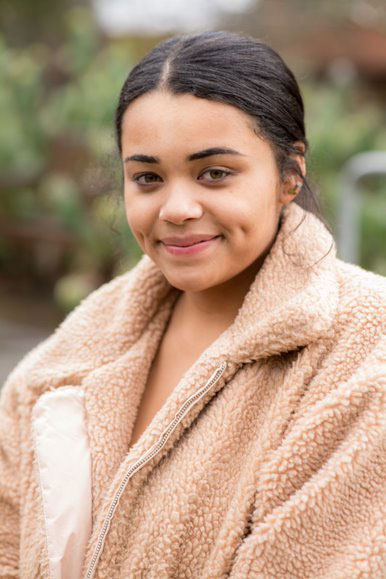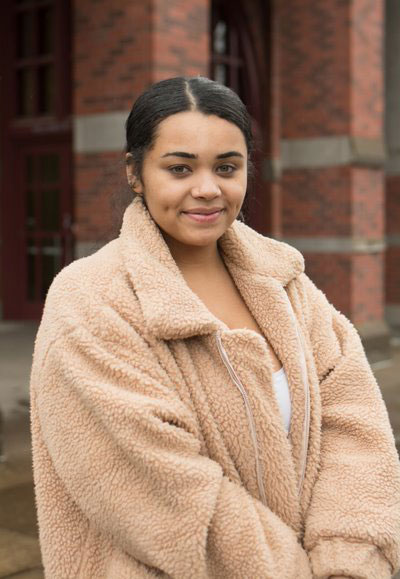Peyton didn't talk about "it" at school. She barely broached the topic at home. Her dad was incarcerated. Even if she wanted to talk about it, she wasn't sure how.
"It was a really touchy subject," admits Peyton, who grew up in Oregon and now attends college in Eugene. "I went to a [high] school where everyone seemed to have two parents and was really well-off. I never really talked about my home life. I would never talk about my dad."
WHEN INCARCERATION BREAKS UP A FAMILY
Today, 2.7 million children in the U.S. have a mom or dad behind bars. Parental incarceration is a difficult and confusing journey, and like many of her peers, Peyton struggled to navigate feelings of abandonment and shame.
Peyton was in first grade when her father went to prison. Incarceration all but severed the relationship between father and daughter, who had to rely on two-hour visits that felt too long, yet not long enough—the standard prison protocol, the awkward silences. Longing for hugs. Hesitating to give one.
"I remember weeks when I would go see [my dad] but wouldn't say anything …," Peyton says. "Some days it hurt too much, and I just couldn't do it."

'I remember weeks when I would go see my dad but wouldn't say anything … Some days it hurt too much.'
A WORLD CHANGED FOREVER
All that changed after a week of Angel Tree Camping®. Every summer, Prison Fellowship® partners with Christian camps across the country, providing scholarships and other resources to make camp possible for prisoners' children.
At camp, Peyton found a safe haven from the challenges of growing up with an incarcerated father. She struck up friendships with campers who had similar home lives. Caring counselors helped her realize how much pain she had buried deep inside.

On the last night of camp, Peyton heard a timely lesson from the chapel speaker.
"The message was to let go of the lies you have told yourself," Peyton recalls. "My heart opened, my guard crumbled down, and I was just completely open to Jesus' healing."
After camp, Peyton was bursting with stories to tell. She called her dad the night she got home. Beyond the thrill of pool parties, go carts, and horseback riding, she was most passionate about the new Bible she received. Already she had opened it to Genesis 1 and marveled at the creation story. The same God who spoke the world into existence had changed her forever.
"I owe a lot of that to camp," says Peyton. "It really put me back on the path that I was supposed to be on."
'A lot of Angel Tree kids come from really bad memories and relationships. They're coming to camp broken, and they're leaving with love and healing.'
MAKING CAMP POSSIBLE
Peyton's dad was released in 2014. These days, the two enjoy father-daughter lunches when Peyton is home from college. Throughout the rest of the year, they make frequent phone calls. There's always plenty to talk about.
And now that Peyton serves as a counselor at Camp Agape and volunteers in the mentor program, she's able to invest in kids with families just like hers.
"Just to see how [kids] change in four days is amazing," she says. "They grow in their understanding that they are loved and their pain is temporary. … They are told over and over that they are loved, and they are worthy. ... A lot of them come from really bad memories and relationships. They're coming to camp broken, and they're leaving with love and healing."
In an open letter to Angel Tree Camping and all who make it possible, Peyton's dad writes,
From the bottom of my heart, I would like to say thank you. Thank you for your love, the love you show to our children, to my child, I am so grateful to you for making my daughter feel loved and welcomed, and more so for being examples of God's love for us, for her, for me. By loving her, you have shown me love. By caring for her, you have cared for me as well.

'By loving her, you have shown me love. By caring for her, you have cared for me as well.'